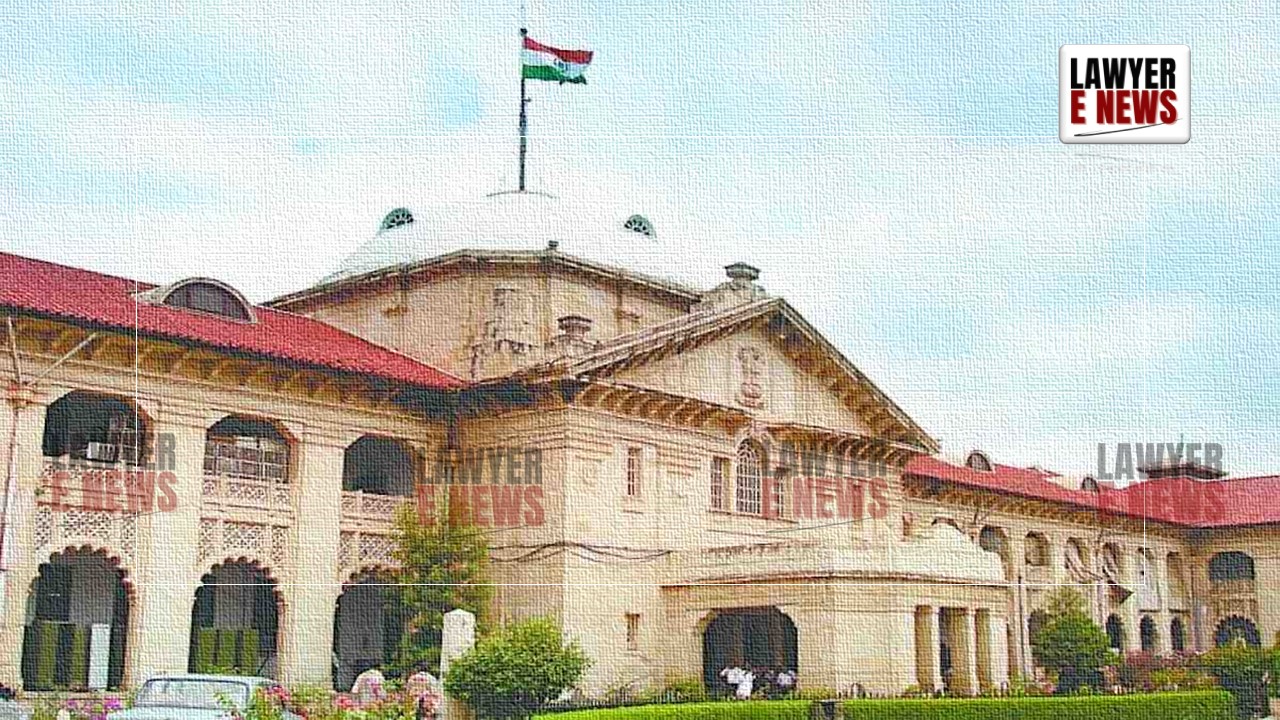-
by Admin
15 February 2026 5:35 AM



High Court underscores the importance of non-mechanical issuance of cognizance orders under Section 190 Cr.P.C.
In a significant ruling, the Allahabad High Court has set aside a cognizance order issued by the Judicial Magistrate, Azamgarh, citing the mechanical nature of the order which was prepared using a printed proforma. The decision, delivered by Hon’ble Justice Syed Qamar Hasan Rizvi, highlights the necessity for judicial application of mind in the issuance of such orders to prevent abuse of the judicial process.
The case originated from an FIR filed by Smt. Vidyawati Devi against six individuals, including the applicant Roshan Lal Alias Roshan Rajbhar, alleging offenses under Sections 434 and 506 of the IPC. The allegations pertained to dismantling boundary marks on her property and issuing threats, following a demarcation under Section 24 of the U.P. Revenue Code, 2006.
Judicial Application of Mind: The court criticized the issuance of the cognizance order on a printed proforma, emphasizing that judicial orders, including those taking cognizance, must reflect a thoughtful consideration of the case materials. “A cognizance order must not be issued mechanically but should demonstrate the Magistrate’s application of mind to the facts and circumstances of the case,” stated Justice Rizvi. The court found that the impugned order lacked such judicial scrutiny.
Justice Rizvi reiterated that the process of taking cognizance involves the Magistrate applying their mind to the allegations and evidence presented. Citing several Supreme Court judgments, including Darshan Singh Ram Kishan v. State of Maharashtra and Sunil Bharti Mittal v. Central Bureau of Investigation, the court underscored that cognizance is taken when a Magistrate considers the allegations sufficient to constitute an offense and decides to initiate proceedings.
The court noted, “The use of a printed proforma for passing judicial orders is indicative of non-application of judicial mind and undermines the integrity of the judicial process.”
Justice Rizvi observed, “It is imperative that a Magistrate, when taking cognizance of an offense, must apply their mind to the material on record and ensure that the order reflects a judicious consideration of the case.”
The Allahabad High Court’s decision to quash the cognizance order serves as a crucial reminder of the importance of judicial diligence and the non-mechanical issuance of orders. By setting aside the order, the court has reinforced the principle that judicial processes must be conducted with careful consideration to uphold justice and prevent abuse of the legal system. The Magistrate has been directed to reconsider the charge-sheet and issue a fresh order in accordance with the law.
Date of Decision:7th May 2024
Roshan Lal Alias Roshan Rajbhar And Others vs. State of U.P. and Another
